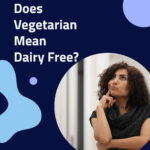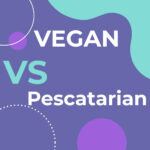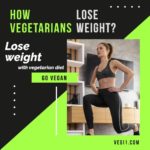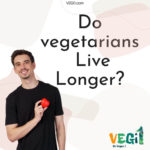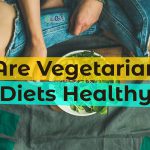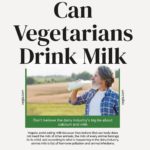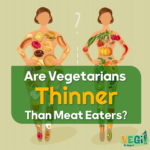What’s The Difference Between Plant-Based and Vegan
Plant-Based vs. Vegan Diets: Unveiling the Key Differences
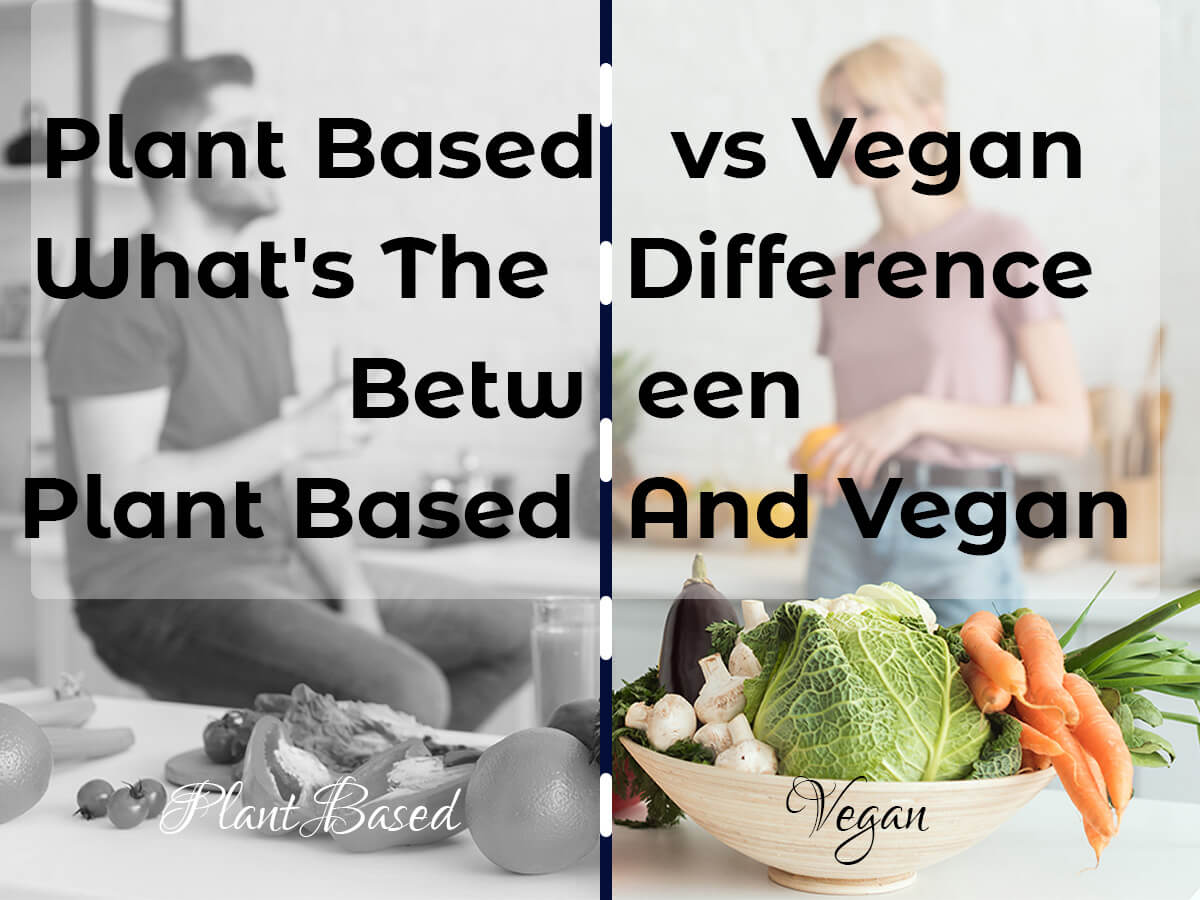
Are you curious about the differences between “plant-based” and “vegan” diets?
You’re in the best possible position!
As someone who follows a vegan lifestyle, I’m excited to share some information with you!
Despite the frequent use of these two terms synonymously, they have distinct meanings.
A plant-based diet focuses on whole, minimally processed plant foods like fruits, vegetables, nuts, whole grains, and legumes.
The nature of a vegan diet is that it aims to eliminate all forms of animal products, including meat, eggs, dairy, and honey.
This article will delve into the contrasts between plant-based and vegan lifestyles, shedding light on their unique characteristics and guiding you to make informed dietary choices.
So whether you’re looking for a new way to eat or just curious about these diets, keep reading to learn more!
In this article you will read:
What is a plant-based diet?
I’d love to share some insights on this topic with you.
A plant-based diet is simply a way of eating that places a strong emphasis on whole plant foods, including things like fruits, vegetables, whole grains, legumes, nuts, and seeds.
This way of eating can include some animal products like eggs or dairy, but it’s often customized based on an individual’s goals and preferences.
Interestingly, some people use the term “whole foods, plant-based” to describe a way of eating that avoids all animal products, as well as oils and packaged foods that have been processed.
While there may be slight variations in what each person considers a plant-based diet, the common thread is a focus on nutrient-dense whole foods that provide a wealth of health benefits by supporting everything from digestion to circulation to overall well-being.
Health benefits of Eating a plant-based diet
Eating a plant-based diet has the potential to offer a wide range of health benefits!
These include reducing the chances of developing chronic diseases, such as heart disease, diabetes, obesity, and some types of cancer.
This is because plant-based foods have many nutrients that are essential for optimal health, such as fiber, antioxidants, phytochemicals, vitamins, minerals, and healthy fats.
These vital nutrients work to help regulate inflammation, blood pressure, cholesterol levels, blood sugar levels, and immune function.
By incorporating more plant-based foods into your diet, you may be able to improve your health and reduce your risk of chronic disease.
When it comes to the health benefits of a plant-based diet, there are many things to consider.
Take fiber, for example, which is found in many plant-based foods.
This important nutrient can help to lower cholesterol levels, improve digestion, and prevent constipation.
But that’s just the beginning! Antioxidants, which are also commonly found in plant-based foods, have a whole host of benefits too.
These powerful compounds can help protect cells from oxidative stress, which is known to play a role in aging and disease.
But it’s not just fiber and antioxidants that you should consider – phytochemicals are another group of nutrients that are often found in plant foods.
These little helpers can help to regulate hormones, inhibit tumor growth, and modulate gene expression.
And let’s not forget about vitamins and minerals, which are essential for maintaining optimal health.
These nutrient powerhouses can support various bodily functions, such as vision, bone health, nerve function, and blood clotting.
Last but not least, healthy fats are also an important part of a plant-based diet.
These can help lower inflammation, improve brain function, and support cardiovascular health.
Overall, eating a diet rich in plant-based foods can provide a wide range of health benefits that contribute to overall wellness.
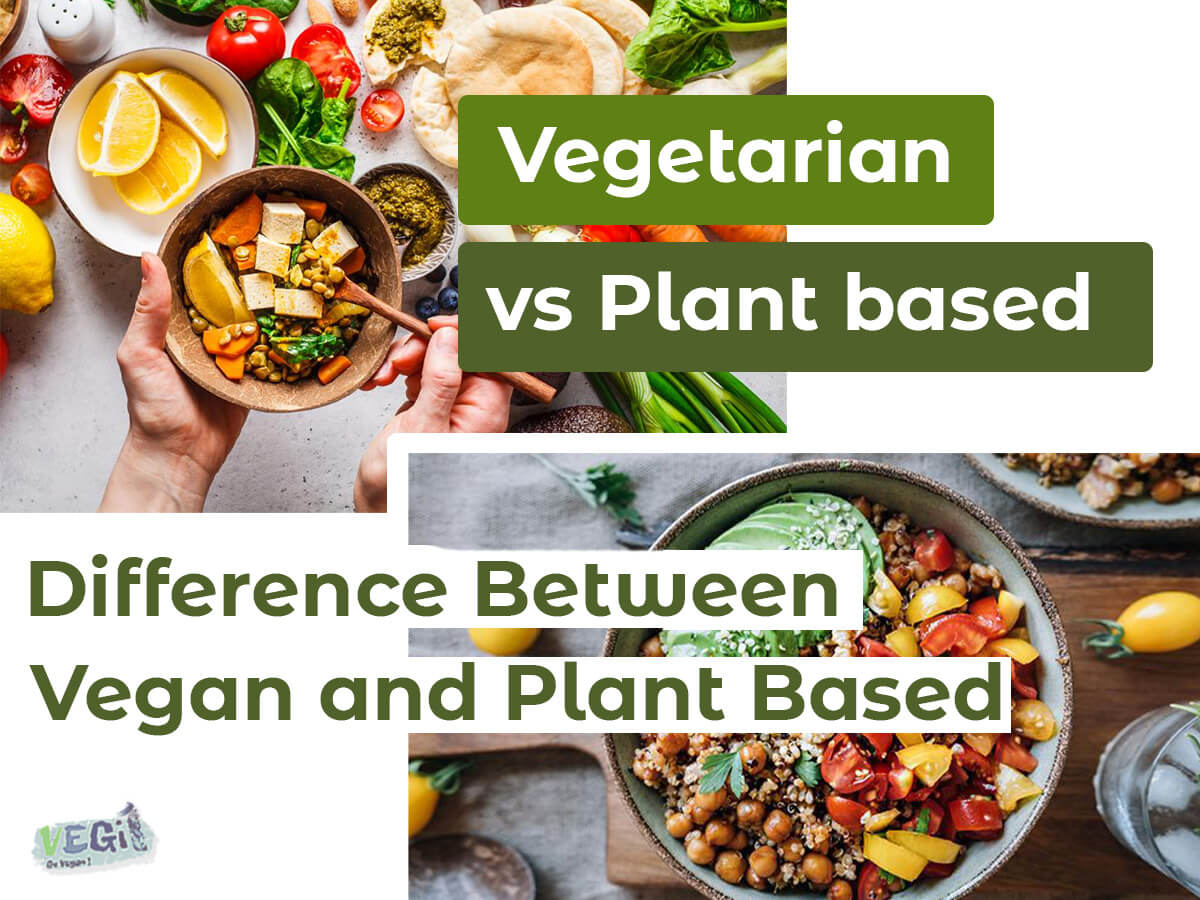
Environmental benefits of a plant-based diet
Did you know that a plant-based diet isn’t just good for your personal health, but it can also be beneficial for the environment?
That’s right! By choosing more plant-based food options, we can make a difference in reducing greenhouse gas emissions, water use, land use, and energy use, among other environmental concerns.
This is because animal agriculture, which is a major contributor to the world’s supply of animal products, is a large contributor to issues such as climate change, water scarcity, soil degradation, deforestation, biodiversity loss, and pollution.
By choosing plant-based options instead of animal products, we can help to lessen these negative impacts on the environment and promote a healthier planet overall.
In particular, there are many benefits to reducing our consumption of meat and other animal-based products.
For example, did you know that animal agriculture is one of the leading causes of greenhouse gas emissions?
Livestock farms, including cows, sheep, and other ruminants, are responsible for significant greenhouse gas emissions through enteric fermentation that causes the release of methane.
These emissions are further compounded by methane and nitrous oxide released through manure management.
Therefore, the livestock industry is the primary contributor to greenhouse gas emissions from the agriculture sector, which also includes land use, land-use change, and forestry.
By reducing our consumption of animal-based products, we can help to mitigate the effects of climate change and reduce our carbon footprint.
In addition to climate change, animal agriculture is also linked to other environmental concerns.
Did you know that it can be a major contributor to water scarcity?
According to some estimates, animal agriculture can use up to 70% of the world’s freshwater resources.
By choosing plant-based options instead of animal-based ones, we can help to conserve water and protect this important natural resource.
Furthermore, animal agriculture can also contribute to soil degradation, deforestation, biodiversity loss, and pollution, all of which have negative impacts on the environment.
By opting for plant-based options, we can help to reduce these impacts and promote a healthier planet for all.
This is because animal agriculture is a major contributor to climate change, water scarcity, soil degradation, deforestation, biodiversity loss, and pollution.
I want to share some statistics with you that demonstrate the environmental benefits of following a plant-based diet:
- Animal agriculture accounts for about 14.5% of global greenhouse gas emissions, which is more than the combined emissions from all transportation sectors.
- Animal agriculture uses about 70% of global freshwater resources, which is more than any other human activity.
- Animal agriculture occupies about 30% of the world’s ice-free land surface, which is more than any other land use.
- Animal agriculture is responsible for about 80% of global deforestation, which threatens the habitats of many species and reduces carbon sequestration.
- Animal agriculture produces about 65% of global nitrous oxide emissions and 37% of global methane emissions, which are potent greenhouse gases that trap more heat than carbon dioxide.
Except Difference Between Plant-Based and Vegan, a vegan diet can also have similar environmental benefits as a plant-based diet if it is based on whole plant foods.
However, a Plant-Based diet may have a higher environmental impact if it relies heavily on processed foods or meat substitutes that are imported or require more resources to produce.
For example,
- Processed foods like chips; cookies; candy; or soda may contain palm oil; which is linked to deforestation; habitat loss; and human rights violations in tropical regions.
- Meat substitutes like veggie burgers; nuggets; or sausages may contain soy protein isolate; which is derived from soybeans that are often grown with pesticides; fertilizers; and genetically modified organisms (GMOs) that can harm soil quality; biodiversity; and human health.
- Imported foods like avocados; bananas; or quinoa may have a high carbon footprint due to transportation emissions; as well as social impacts due to unfair trade practices or exploitation of local workers.
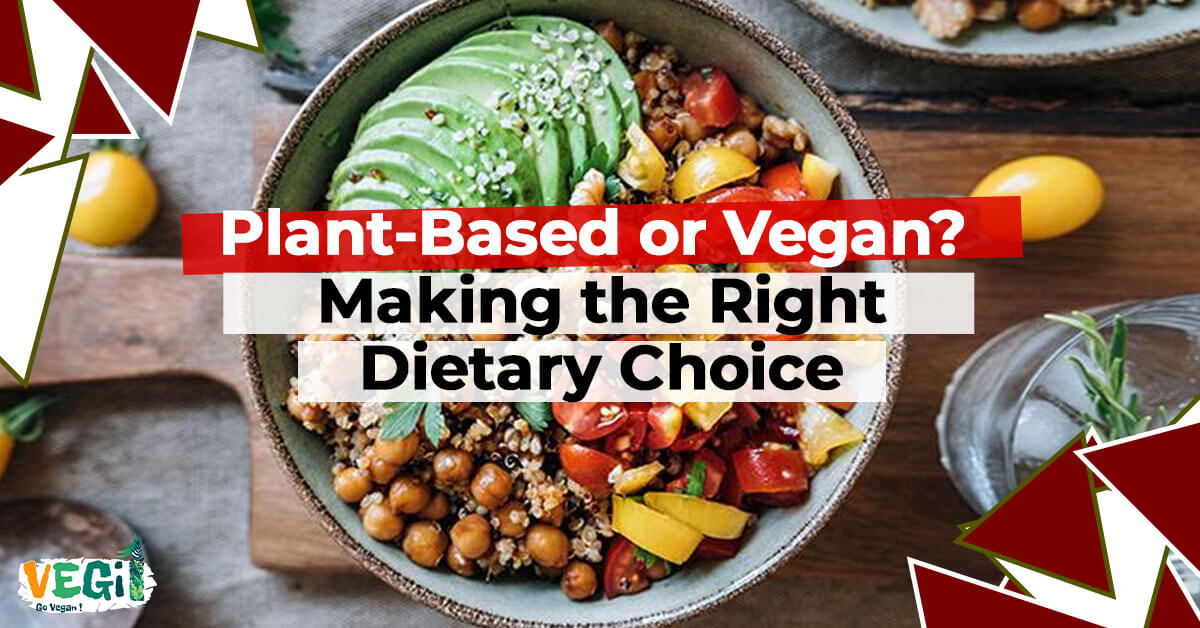
What is a vegan diet?
As someone who follows a vegan lifestyle, I opt to exclude all forms of animal exploitation and cruelty, whether it be for food, clothing, or any other purpose.
For example, I abstain from consuming animal products and by-products such as meat, fish, poultry, eggs, dairy, honey, gelatin, and so on.
For example, I abstain from consuming animal products and by-products such as dairy, honey, and eggs and products containing animal derivatives such as animal collagen, casein, and gelatin.
The motivation behind this is based on ethical grounds that stem from my compassion for animals and my belief that they have rights, just like humans.
As a vegan, I firmly believe that animals are not here for us to use or harm for our benefit and that we should respect them just as we respect our fellow humans.
As a vegan, I strongly believe that supporting the development and use of animal-free alternatives is crucial not only for the benefit of animals; but also for humans and the environment.
It’s important to note that vegans stand against factory farming, recognizing that it subjects billions of animals to confinement, mutilation, deprivation, abuse, and ultimately slaughter every year.
Furthermore, I am opposed to animal testing, which involves exposing millions of animals to pain, suffering, and sometimes death in order to develop products or conduct research that is often unnecessary or unreliable.
I understand the need for scientific advancements, but I firmly believe that there are more compassionate and effective methods for this pursuit.
Similarly, I believe that animal entertainment, such as circuses or zoos, is exploitative and forces animals to perform unnatural behaviors or live in captivity.
As a compassionate individual, I strongly support animal sanctuaries that rescue and rehabilitate animals who have been subject to abuse or abandonment by the animal industry or other human activities.
These sanctuaries provide a safe and loving environment for animals to thrive, free from harm or exploitation.
Finally, I promote vegan businesses and organizations that offer cruelty-free products and services that do not harm animals or the environment.
This can include anything from plant-based food companies to fashion brands that don’t use animal products in their clothing.
As a vegan, I strive to support these types of businesses and organizations whenever possible, as they are helping to create a more sustainable and compassionate world.
Health benefits of a vegan diet
A vegan diet can have similar health benefits as a plant-based diet if it is well-planned and balanced.
However, a vegan diet may require more attention to certain nutrients that are mainly found in animal products, such as protein, iron, calcium, zinc, vitamin B12, and omega-3 fatty acids.
Vegans can obtain these nutrients from fortified foods, supplements, or plant sources like soy, quinoa, lentils, beans, nuts, seeds, green leafy vegetables, and algae.
For example,
- Protein is essential for building and repairing tissues in the body.
Vegans can get enough protein by eating a variety of plant foods that contain all nine essential amino acids.
These include soy products like tofu or tempeh; grains like quinoa or oats; legumes like beans or lentils; nuts like almonds or walnuts; seeds like hemp or chia; and vegetables like broccoli or kale. Which Vegan Foods Are High in Protein? - Iron plays a vital role in the blood’s capacity to transport oxygen.
Vegans can get enough iron by eating iron-rich plant foods like spinach; beans; lentils; tofu; dried fruits; nuts; seeds; whole grains; and fortified cereals or breads.
They can also enhance iron absorption by consuming vitamin C-rich foods like citrus fruits; strawberries; tomatoes; peppers; or kiwis along with iron sources. How Vegan Get Iron? - Calcium is vital for maintaining strong bones and teeth.
Vegans can get enough calcium by eating calcium-rich plant foods like kale; bok choy; broccoli; okra; almonds; sesame seeds; tahini; fortified plant milks; fortified orange juice; fortified tofu; or calcium-set tofu.
They can also improve calcium absorption by avoiding excessive intake of sodium; caffeine; alcohol; or oxalates (found in spinach; beet greens; rhubarb; and chocolate). Discover the Best Vegan Sources of Calcium for Strong Bones - Zinc is crucial for supporting immune function and wound healing.
Vegans can get enough zinc by eating zinc-rich plant foods like pumpkin seeds; sunflower seeds; sesame seeds; cashews; peanuts; almonds; tofu; tempeh; lentils; beans; oats; quinoa; or fortified cereals or breads.
They can also boost zinc absorption by soaking; sprouting; or fermenting grains; legumes; nuts; and seeds before eating them. Foods High in Zinc for Vegetarians and Vegans - Vitamin B12 is necessary for producing red blood cells and maintaining nerve function.
Vegans can get enough vitamin B12 by consuming vitamin B12-fortified foods like plant milks; soy products; nutritional yeast; or cereals or breads.
They can also take vitamin B12 supplements as recommended by their health care provider. What Foods Are High in B12 Vitamin For Vegetarians and Vegans - Omega-3 fatty acids are beneficial for reducing inflammation and protecting brain health.
Vegans can get enough omega-3 fatty acids by eating omega-3-rich plant foods like flaxseeds; chia seeds; hemp seeds; walnuts; soybeans; tofu; or algae oil.
They can also take omega-3 supplements derived from algae as advised by their health care provider. Foods High in Omega 3 for Vegetarians and Vegans
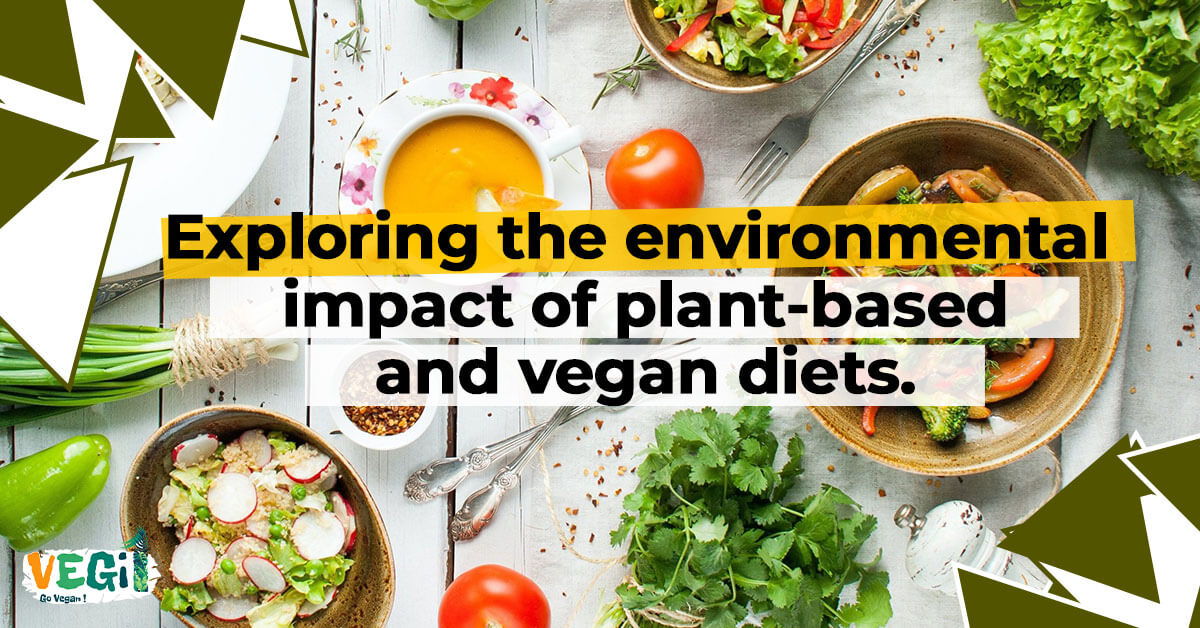
Environmental benefits of a vegan diet
From an ethical and environmental standpoint, veganism has been one of my most impactful choices. Not only does it align with my values of compassion towards animals, but it also brings a host of environmental benefits. By eliminating animal products from my diet, I contribute to reducing greenhouse gas emissions, deforestation, and water pollution caused by the animal agriculture industry. Additionally, I actively participate in conserving natural resources, as vegan diets require fewer land and water resources than animal-based diets.
Knowing that every meal I enjoy nourishes my body and reduces my carbon footprint is great. Choosing a vegan lifestyle is my way of making a positive change for the planet, and it fills me with a sense of purpose and joy, knowing that my actions are contributing to a more sustainable future.
What are the key differences between plant-based and vegan diets?
The main Difference Between Plant-Based and Vegan
From my perspective as a vegan, the main difference between a plant-based diet and vegan lies in the underlying philosophy and lifestyle choices.
While both approaches revolve around a plant-centric diet, being plant-based means primarily consuming whole, unprocessed plant foods. It’s all about nourishing your body with the goodness of fruits, vegetables, grains, legumes, and nuts.
A plant-based diet primarily focuses on consuming whole, minimally processed plant foods while avoiding or minimizing animal products.
On the other hand, being vegan encompasses not only dietary choices but also extends to various aspects of life, including clothing, cosmetics, and other products derived from animals.
Vegans aim to create a positive impact by advocating for animal rights and minimizing their contribution to animal exploitation.
While plant-based diets can be seen as a dietary preference, veganism is a more comprehensive way of life that embodies a commitment to animal welfare and environmental sustainability. Both approaches share a common foundation of emphasizing plant foods, but being vegan goes beyond diet and encompasses a broader set of values and principles.
- The main difference between plant-based and vegan diets is that plant-based diets focus on what to eat, while vegan diets focus on what not to do.
- Plant-based diets are based on health reasons, while vegan diets are based on ethical reasons.
- Plant-based diets can include some animal products, while vegan diets exclude all animal products.
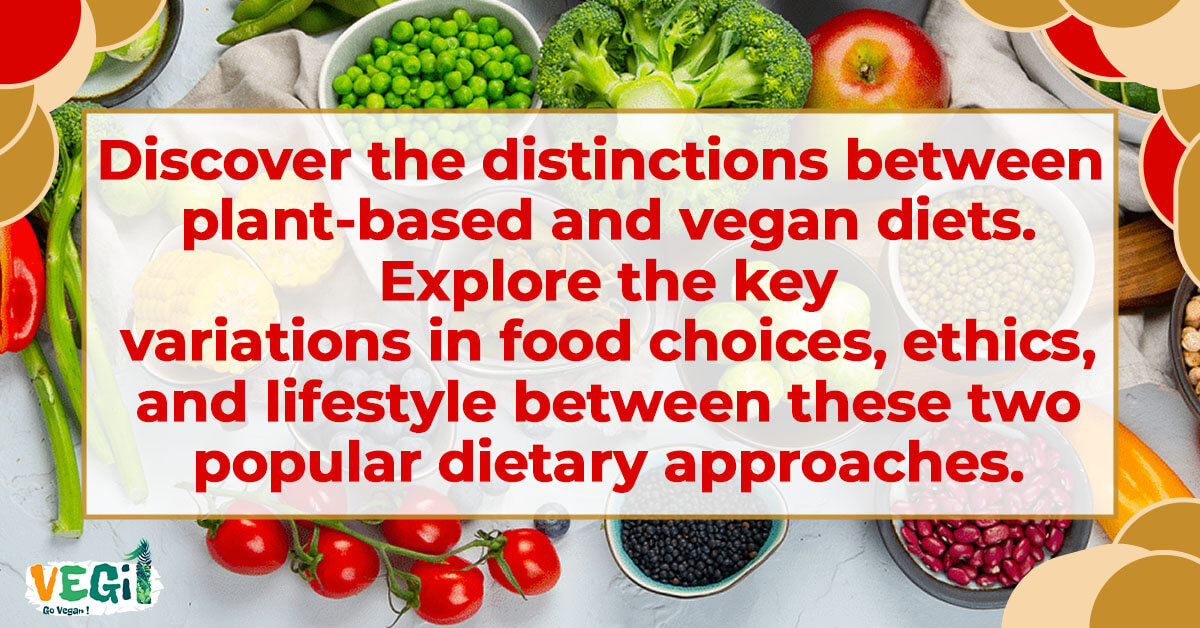
Key differences between plant-based and vegan diets
The following table summarizes the key differences between plant-based and vegan diets:
| Plant-Based | Vegan |
| Focuses on eating mostly or exclusively plant foods | Focuses on avoiding all animal products and by-products |
| Motivated by health reasons | Motivated by ethical reasons |
| Can include some animal products depending on individual preferences | Excludes all animal products without exceptions |
| May or may not avoid oils and processed foods | May or may not eat whole foods |
As you can see, veganism is more than a diet for us vegans. It is a lifestyle where we try to reduce pain and suffering as much as we can for other beings. And as much as we can, our choices are in harmony with the health and well-being of other beings.
We try not to upset people.
Do not harm animals and creatures.
We do not buy clothes made from leather, wool, or animal derivatives
Sometimes we are hungry and travel a long way to reach a restaurant that has vegan food.
If an insect comes into our home, we try not to kill it but remove it from our living place.
Sometimes we clean nature and collect the garbage left in nature because we don’t want human mistakes to damage the environment.
And if you ask me, veganism is a religion and ethics, not a diet, and we try to think about all our choices throughout life with this view.!
How to choose between plant-based & vegan diets?
If you are considering making changes in your diet, it’s important to recognize Difference Between Plant-Based and Vegan.
Choosing between a plant-based and vegan diet should be based on your personal values, goals, and preferences.Both options offer benefits in terms of health, animal welfare, and the environment.
There isn’t necessarily a “right” or “wrong” choice when it comes to how we eat, as long as we respect others’ choices and are aware of the impact of our actions.
For those looking to improve their health and reduce their environmental impact, adopting a plant-based diet that consists primarily of whole, minimally processed foods can be a great option.
This type of diet emphasizes fruits, vegetables, whole grains, legumes, nuts, and seeds, which are all nutrient-dense and high in vitamins, minerals, fiber, and antioxidants.
It’s important to note, however, that a plant-based diet doesn’t necessarily exclude all animal products, and it still allows for some wiggle room when it comes to food choices.
You might choose to include small amounts of animal products in your diet, such as eggs or dairy, or you might opt to avoid all animal products for ethical reasons.
Whatever your dietary choices may be, it’s important to understand that they have consequences both for your own health and for the world around us.
By being conscious of our food choices and their impact, we can work towards a more sustainable and compassionate future.
Remember, it’s not about perfection; it’s about making conscious choices that contribute to a better world, one meal at a time.
My Vegan Journey: Challenges of adhering to a plant-based or vegan lifestyle
I couldn’t ignore the environmental impact of animal agriculture and the cruelty animals endure in the industry.
Going vegan allowed me to take a stand and make a positive difference daily through my food choices. It’s not always easy, but the fulfillment I feel knowing that I’m contributing to a more compassionate world makes it all worthwhile. Plus, exploring plant-based foods has been a delightful culinary adventure!
Navigating social situations and finding suitable options when dining out
One of the challenges of being vegan is navigating social situations where animal-based foods often dominate.
However, I’ve learned some valuable strategies to enjoy these gatherings without compromising my vegan lifestyle.
- Firstly, I always communicate my dietary choices with friends and family in advance so that they can accommodate my needs.
- If I’m attending a party or BBQ, I often bring a flavorful plant-based dish to share, which not only showcases delicious vegan food but also ensures there’s something substantial for me to enjoy.
- Additionally, I’ve discovered the joy of hosting my own vegan-friendly events, where everyone can savor mouthwatering plant-based meals and embrace the idea that vegan food can be both delicious and inclusive.
Finding Suitable Dining Options
Eating out as a vegan can initially seem like a challenge.
Still, more restaurants are recognizing the demand for plant-based options and offering dedicated vegan menus or clearly labeling vegan dishes.
I’ve discovered several local eateries that cater specifically to vegans, . Moreover, I’ve found that ethnic cuisines like Indian, Thai, and Mediterranean often offer many vegan choices, as plant-based ingredients are integral to their traditional dishes.
15 Best Restaurants That Have Vegan Options (in the world)
Tips for Transitioning Plant-Based to a Vegan Diet
So, you’re ready to change your lifestyle into a vegan? Congrats! It’s an exciting and compassionate journey that will positively impact your health, the environment, and the lives of animals. Here are some friendly tips to help you transition smoothly:
- Educate Yourself: Start by learning about the principles and ethics of veganism. Explore documentaries, books, and online resources to deepen your understanding of the impact your choices can make.
- Gradual Progression: Transitioning doesn’t have to happen overnight. Consider taking small steps, like designating certain days as “vegan days” or gradually replacing animal-based products with plant-based alternatives.
- Seek Vegan Alternatives: Numerous vegan alternatives are available for almost every animal-based product. Whether it’s plant-based milk, mock meats, or dairy-free cheeses, these options can make your transition easier and more familiar.
- Connect with the Vegan Community: Join local vegan groups, attend meetups, or engage in online communities to connect with like-minded individuals. Sharing experiences, recipes, and support can make the transition more enjoyable and provide a sense of belonging.
Remember, transitioning to a vegan diet is about embracing a compassionate lifestyle while being kind to yourself. Celebrate each step forward, and don’t beat yourself up over slip-ups. It’s a journey of growth and learning, and the we are here to support you every step of the way.
Conclusion: Exploring the Distinctions between Plant-Based and Vegan Diets
Congratulations on reaching the end of our journey into the differences between plant-based and vegan diets! By now, you clearly understand these two dietary approaches and their unique benefits.
A plant-based diet focuses on consuming whole, minimally processed plant foods, providing numerous health benefits like improved digestion, increased energy levels, and potential weight loss. It benefits our well-being and positively affects the environment by reducing greenhouse gas emissions, conserving water, and minimizing deforestation.
On the other hand, a vegan diet takes it a step further by excluding all animal-derived products, aligning with ethical concerns about animal rights and welfare. In addition to the health benefits mentioned earlier, a vegan lifestyle further reduces the demand for animal agriculture, which is a leading contributor to climate change and deforestation.
The key differences lie in the ethical aspect of veganism and excluding all animal products. At the same time, a plant-based diet may allow for occasional animal product consumption. Both paths contribute to personal health and environmental sustainability in their own ways.
I strongly encourage you to consider incorporating more plant-based foods into your diet. Whether you choose to adopt a fully or partially plant-based approach, increasing your intake of plant-based foods can positively impact your health and the environment.
Remember, it’s a journey of self-discovery and making choices that feel right for you.
We hope this article has provided valuable insights and guidance in your decision-making process. We would love to hear your feedback and thoughts on the topic. Feel free to share your experiences, ask questions, or provide suggestions in the comments below. Your input will help us continue to create content that meets your needs and interests.
Thank you for joining us on this exploration of plant-based and vegan diets.
Remember, whether you go plant-based, vegan diet, or somewhere in between, every small step towards a more compassionate and sustainable lifestyle makes a difference.


